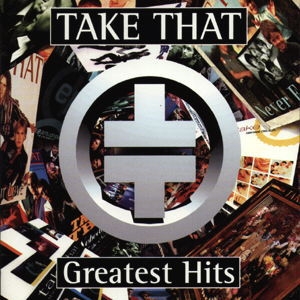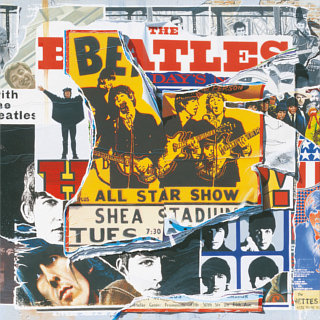(#547: 4 May 1996, 2 weeks; 29 June 1996, 1 week; 20 July 1996, 8 weeks)
Track listing: All I Really Want/You Oughta Know/Perfect/Hand In My Pocket/Right Through You/Forgiven/You Learn/Head Over Feet/Mary Jane/Ironic/Not The Doctor/Wake Up
(MC's Note: this post was written by Lena and edited and published by me.)
It must have been Madonna who saw something in the girl – and she was just a girl, still – who had already made two albums as a teenager (and written the songs herself). That Morissette was raised a Catholic and had been running with the ‘adult crowd’ when she was sixteen, and hadn’t really been encouraged to find her voice, until now...
For most of the world, Morissette was a figure out of the blue; but if you lived in Canada (as I did) you at least knew she had been in the music business for some time (with albums Alanis and Now Is The Time) and this was her big adult statement, a coming-of-age album. That it was such a resounding success is in part to that freshness – she carries no baggage, is disarmingly direct and is, in today’s terms, ‘relatable.'
Not that I bought this album myself at the time – my own huge rock-album-by-a-female-telling-it-like-it-is remains the incomparable Only Everything by Juliana Hatfield, an album I am too close to in so many ways to write about. Basically it’s one of those albums that didn’t so much change my life but gave me hope that maybe someday someone would hear it and immediately get me. It is such an all-encompassing album that when Jagged Little Pill came along a few months later, I had no real need of it, and as Morissette is a Canadian I was bound to hear songs from it for well over a year on the radio anyway. I hate to condescend but I thought she was for the girls – well, yes – but hearing the whole thing makes me think a bit differently.
If you lived in Canada in the post-WWII era, you knew something was wrong with the Catholic church – the church that Morissette attended, the church whose schools she attended as a girl. The line ‘slap me with a splintered ruler’ jumps out of “All I Really Want” It reveals the main theme of the album – authority and her rebellion against it. She’s angry, even if she didn’t go through the hell of being in an orphanage. That titular bit of knowledge she values comes from her own experience, and yet she cannot escape the ‘loverless priests’ (in “Forgiven”) who at least gave her some structure of how she should behave, even if she went against them in her youth. At least she can confess; and this album is a bit of a confession too. It starts with a list of things she wants (presaging “SSSSSSSSSSOOO tell me what you want/I’ll tell you what I want what I really really want” by a year) – someone who can catch her drift, yes, but ultimately also justice. She knows she’s stressing you out, she’s disgusted by your apathy (towards what, who?) and wonders why you can’t stand silence. Alanis is not here to give you a good time, she is here to give herself and you a place to vent, to be angry, to speak out and reflect on experience. Apart from “Head Over Feet” there are no love songs here, and even that love is in spite of herself.
Now you may think, what was I up to? Did I have any real right to condescend to her? In reality, I didn’t. 1996 was a long year of almost everyone getting ahead of me, quite determinedly in some cases, with the also slowly growing realization that it was a waste of time comparing myself to others. Already fate/destiny/what-have-you was seeing to that* as well as the death of a young woman, a friend of those in my social circle. It made the idea of status anxiety even more poignant and terrible. She seemed to have everything sewn up – a part-time job as a teacher in a good school, a boyfriend and (I saw her once, but was not introduced to her) a kind of glowing intelligence. She still lived with her parents, longing for her many gifts to be recognized...
And then she was gone.
This is why I can’t help but hear Jagged Little Pill as the album of one who did get to escape and live to tell her tales – she had to go to Los Angeles with Glen Ballard to work on the songs and record them, as the politesse of Canada (I am guessing) was a little to repressive for her. It was meant to be a big album, I think – the music is purely in service to the lyrics and they are as direct and explicit as possible – big sing-a-longs that angry girls/young women can and do still relate to** in a big way.
That said, this album also reminds me of the pathetic comedy that was my, uh, ‘lovelife’ at the time. I swear, it was like a bell had gone off and everyone I knew was pursuing someone, hopelessly maybe, but pursuing them nevertheless. Here’s Alanis telling some guy off because he was cheating on her with obvious ‘marriage material’ (“I hate to bug you in the middle of dinner” at least isn’t passive-aggressive nonsense) when I in turn was being courted by a man who took me to a fairly average Italian place and only once the bill came did he tell me it was a date. Talk about not really knowing what to do, while Alanis is telling some other guy in “Not The Doctor” about how she doesn’t want to be this or that and hmm, yeah, do you just want to be an insignificant other here? Or instead someone free of cliché? That the man who courted me would drive me around in his brother’s car, what album was in the car stereo? This one, of course – that’s how ubiquitous it was
But did I let him court me furtively, just for the sake of some attention? Why, yes. I should not have done this, especially since he had already known me socially for...four years? The whole thing was some sort of party game, a kind of musical chairs, while Alanis was already over irony (how can you have a “free ride, when you’ve already paid”?) and extolling the virtues of being excessive and trying too hard and living and learning. What on earth was I learning by being courted by someone years after it would have made sense? That I was willing to go along with all this was also very (a poor excuse, but a genuine one) 1996. David Stubbs, in his book about that year, says “Why didn’t I do more? Why didn’t I do better?” In my case, why did I not stop someone courting me when the answer was always going to be no?***
Jagged Little Pill is an album made with a clarity and sharpness of feeling that I lacked at the time – and an impatience I didn’t have, a wary guardedness. With her sharp voice and candid stories, Alanis won over a whole generation in a way that Juliana Hatfield (or indeed Liz Phair) could not, a nice Canadian girl breaking loose and telling it like it is, and all at the age of 21. Alanis’ courage to have her voice taken seriously (she disses the industry men who saw her as a mere sex symbol in “Right Through You”) gave a lot of others girls courage too. But not just courage – a certain smart wordiness, humour, a willingness to be yourself and not mould yourself to someone else’s image (her Canadian accent is loud and clear). Have I been too forward here? I have only been giving my account, just as Alanis has...
I needed to find a way out, to be shown that was even possible, to be given a sign. It would not be easy, I knew. I would have to pull away and be brave and wait. A song on the radio about waiting would help, wouldn't it?
*I had a mystical experience in the true William James Varieties of Religious Experience way in 1995, which is exactly the kind of thing that isn’t really ‘relatable’ in a literal sense, and it of course changed me in subtle ways. It did introduce me to St. Bede, forever depicted writing, or more likely shown thinking about what to write next. I’m with you, Bede.
**Olivia Rodrigo is one of Alanis’ many musical daughters, so to speak.
***I was point-blank propositioned one warm spring night by someone who was once my friend’s they-were-engaged-and-everything-boyfriend, as of about six months previous. Pardon the swearing, but shit was getting really weird and ugly (too vivid remembrances of me telling his best friend about this in a quite justified the-fucking-hell way and him coolly dismissing my concerns as Beck’s “Devil’s Haircut” came on the cd jukebox) and I kept up being social but things were unravelling in a bad way. God knows what arch smug things the man was courting me was saying to others; I don’t want to know.



